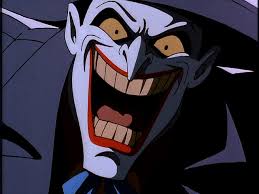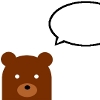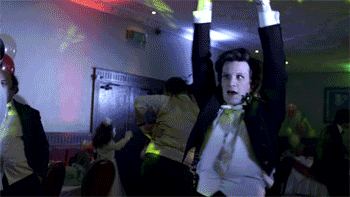Will Digital readers replace books?
82 posts •
Page 1 of 3 •
Will Digital readers replace books?
I've heard about how Ipad and Kindle let you upload books to read. Now I'm curious. Does anyone think this will replace books altogether? Do the authors even get any money out of this?
(Note to mods: if you feel this should be moved to either books or the computing section, I won't mind. I thought this seemed like the best place)
(Note to mods: if you feel this should be moved to either books or the computing section, I won't mind. I thought this seemed like the best place)
"Before I formed you in the womb I knew you, and before you were born I consecrated you. I appointed you to be a prophet of all nations."
--Jeremiah 1:5

Hit me up on social media!
https://www.facebook.com/profile.php?id=100007205508246<--Facebook
I'm also on Amino as Radical Edward, and on Reddit as Rocklobster as well.
click here for my playlist!
my last fm profile!
--Jeremiah 1:5
Hit me up on social media!
https://www.facebook.com/profile.php?id=100007205508246<--Facebook
I'm also on Amino as Radical Edward, and on Reddit as Rocklobster as well.
click here for my playlist!
my last fm profile!
-

rocklobster - Posts: 8903
- Joined: Mon Dec 20, 2004 1:27 pm
- Location: Planet Claire
My feeling is no, because there will probably always be people who love the feeling of a book in their hands, and the experience of turning the pages.
It could happen, though, especially if buying a digital reader becomes incredibly cheap.
It could happen, though, especially if buying a digital reader becomes incredibly cheap.
-

Yuki-Anne - Posts: 1637
- Joined: Thu Aug 10, 2006 10:33 am
- Location: Japan
No, because a book is a lot simpler than an e-reader, you just open it and start reading. That's a major advantage.
-

Straylight - Posts: 2346
- Joined: Mon May 26, 2003 12:00 pm
- Location: Manchester, UK
I don't think books are in danger of going away completely. But that doesn't mean that traditional print media is exempt from being impacted significantly by the proliferation of digital readers.
If I were a commercial printing business owner, I would be looking for ways to adapt my business model yesterday.
If I were a commercial printing business owner, I would be looking for ways to adapt my business model yesterday.
-

Syreth - Posts: 1360
- Joined: Thu Jul 15, 2004 3:12 pm
- Location: Central Washington
I have mixed feelings about these.
For someone like me living in Japan (not a place where it’s not easy to buy English-language books), a digital reader would be very handy in a lot of ways by giving me an easy way to acquire specific books that I want in English without accumulating a bunch of cumbersome and hard-to-transport volumes.
On the other hand, a large portion of the books that I read have end notes. This may have changed, but when I was in the States over the summer looking at the Barnes & Noble digital reader (can’t recall the name of it), I asked the person who was demonstrating it what it would be like to try to switch back and forth between two pages in different parts of the book, and the answer was that it’s a tedious process that requires pressing several buttons. Not as easy as simply flipping to a page in the back of the book that you have bookmarked.
So basically, right now digital readers—at least ones like what I saw—are okay for any kind of book that you can read from page one to the end in order (a light novel, for example), without ever skipping around or referring to different sections of the book. They are not so handy for:
- skimming
- skipping around; reading out of order
- end notes (this is particularly important for me)
- dictionaries, or any sort of reference book (also important to me)
- marking up your text
- the Bible
I can imagine that those things might change as the technology develops, however—for example, it would be awesome if there were a search function that allowed you to look for a term in a text and go straight to the page that contains it (like Bible Gateway, or an electric dictionary). Likewise, being allowed to write directly on the page with a stylus would be great. But for now, given the type of reading I typically do, a digital reader wouldn’t be practical. "Too soon to say" is my answer.
For someone like me living in Japan (not a place where it’s not easy to buy English-language books), a digital reader would be very handy in a lot of ways by giving me an easy way to acquire specific books that I want in English without accumulating a bunch of cumbersome and hard-to-transport volumes.
On the other hand, a large portion of the books that I read have end notes. This may have changed, but when I was in the States over the summer looking at the Barnes & Noble digital reader (can’t recall the name of it), I asked the person who was demonstrating it what it would be like to try to switch back and forth between two pages in different parts of the book, and the answer was that it’s a tedious process that requires pressing several buttons. Not as easy as simply flipping to a page in the back of the book that you have bookmarked.
So basically, right now digital readers—at least ones like what I saw—are okay for any kind of book that you can read from page one to the end in order (a light novel, for example), without ever skipping around or referring to different sections of the book. They are not so handy for:
- skimming
- skipping around; reading out of order
- end notes (this is particularly important for me)
- dictionaries, or any sort of reference book (also important to me)
- marking up your text
- the Bible
I can imagine that those things might change as the technology develops, however—for example, it would be awesome if there were a search function that allowed you to look for a term in a text and go straight to the page that contains it (like Bible Gateway, or an electric dictionary). Likewise, being allowed to write directly on the page with a stylus would be great. But for now, given the type of reading I typically do, a digital reader wouldn’t be practical. "Too soon to say" is my answer.
Let others believe in the God who brings men to trial and judges them. I shall cling to the God who resurrects the dead.
-St. Nikolai Velimirovich
MAL
-St. Nikolai Velimirovich
MAL
-

Kaori - Posts: 1463
- Joined: Wed Dec 22, 2004 4:48 pm
- Location: 一羽の鳥が弧を描いてゆく
Possibly. Especially with today's environmental concern, even businesses are switching over from using paper over to digital tools and computers entirely.
Although I honestly think it's too soon to tell, really.
Although I honestly think it's too soon to tell, really.
-

CrimsonRyu17 - Posts: 859
- Joined: Mon Oct 17, 2005 5:31 pm
Unlike business practices, which strives on pragmatism and efficiency, reading individually is both a leisurely and aesthetic practice.
My answer is no.
My answer is no.
-

Mr. SmartyPants - Posts: 12541
- Joined: Sat Aug 21, 2004 9:00 am
I don't think so. Digital readers are expensive and not everyone can afford them. Even if they became incredibly cheap, I'd still prefer a book in my hands. That, and things like textbooks would survive, also probably magazines too, if anything.
I can't imagine big bookstores closing down because of digital readers... and children wouldn't use them. I agree with Kaori on the fact that real paper books are just more practical to read.
I can't imagine big bookstores closing down because of digital readers... and children wouldn't use them. I agree with Kaori on the fact that real paper books are just more practical to read.

Love takes off masks that we fear we cannot live without and know we cannot live within.
--James Arthur Baldwin
Charm is deceptive, beauty is fleeting,
but a woman who fears the Lord is to be praised.
(Proverbs 31:30)
♪

-

Beau Soir - Posts: 352
- Joined: Thu Jan 28, 2010 2:32 pm
- Location: Lavalava Island
Digital readers are useful for some people, but not all people. I would get one if I started to travel a lot since I love to read on planes, and books are a hassle to carry, size wise, when traveling, but for home use it can be a little silly. And nobody wants to hand a 3 year old a kindle rather than a tough cardboard book, and nobody would use the current e-readers to look up car manuals or other paper based information. They're stuck between book and computer with the limitations of both in some ways.
Beau Soir-
Textbooks are actually swinging towards digital pretty rapidly now, especially in colleges. Though it'll never make it all the way, I can confidently say that there are digital versions of over 50% of all the current textbooks avaliable already.
Beau Soir-
Textbooks are actually swinging towards digital pretty rapidly now, especially in colleges. Though it'll never make it all the way, I can confidently say that there are digital versions of over 50% of all the current textbooks avaliable already.
-

mechana2015 - Posts: 5025
- Joined: Wed Oct 22, 2003 12:33 am
- Location: Orange County
No there's lots of people who would rather have paper books, also if the only way to get it would be online there's a bunch of others and then there are the people that can't stare at electronics and read.
I think I'd be okay with it but I'd prefer paper books to e-books.
I think I'd be okay with it but I'd prefer paper books to e-books.
And this I pray, that your love would abound still, more and more with real knowledge and all discernment. Be prepared to preach the gospel at a moment's notice. Do you know the gospel well enough to do so yourself? Be ready.
-

Furen - Posts: 2695
- Joined: Mon Jul 26, 2010 9:39 pm
- Location: Mostly at my PC, but meh, I can be wherever.
-

Shao Feng-Li - Posts: 5187
- Joined: Sun Oct 12, 2003 12:00 pm
- Location: Idaho
I don't think paper books will ever go away but I do think magazines and newspapers eventually will.
fightin' in the eighties
-

ShiroiHikari - Posts: 7564
- Joined: Wed May 28, 2003 12:00 pm
- Location: Somewhere between 1983 and 1989
armeckthefirst (post: 1426443) wrote:no, take cd's for example, it is easy to download mp3's but there is nothing like buying a cd XD
CDs might be a bad example... They've suffered greatly in the last ten years due to the internet and digital storage. Services like iTunes and AmazonMP3 are great ways to cheaply acquire music pretty much instantly, not to mention rampant music piracy.
Regardless, I take what you say when applied to books and pretty much agree. I don't see books getting phased out any time soon. The feel of them is comfortable and familiar, and they don't suffer quite so badly from rampant overpricing for questionable quality like music does - well, except for text books.
-

Etoh*the*Greato - Posts: 2618
- Joined: Tue Feb 20, 2007 12:46 pm
- Location: Missouri
armeckthefirst (post: 1426443) wrote:no, take cd's for example, it is easy to download mp3's but there is nothing like buying a cd XD
I wonder if that's what people said about cassette tapes back in the day. Or vinyl records.
-

CrimsonRyu17 - Posts: 859
- Joined: Mon Oct 17, 2005 5:31 pm
I think they will be a lot like audio books, people like them, but they will probably never fully replace them.
That said, I like audio books, because I like to multitask... and so when i look them up on my online library, I often get "digital books" in the mix...where you can download the book and read it for up to three weeks.
It's kinda cool, but at the same time not. When I read I really prefer the book in my hands. lol.
That said, I like audio books, because I like to multitask... and so when i look them up on my online library, I often get "digital books" in the mix...where you can download the book and read it for up to three weeks.
It's kinda cool, but at the same time not. When I read I really prefer the book in my hands. lol.
-

ChristianKitsune - Posts: 5420
- Joined: Mon Mar 14, 2005 12:00 pm
- Location: In my sketchbook of wonderment and puffy pink clouds! *\^o^/*
Etoh*the*Greato (post: 1426444) wrote:CDs might be a bad example... They've suffered greatly in the last ten years due to the internet and digital storage. Services like iTunes and AmazonMP3 are great ways to cheaply acquire music pretty much instantly, not to mention rampant music piracy.
Regardless, I take what you say when applied to books and pretty much agree. I don't see books getting phased out any time soon. The feel of them is comfortable and familiar, and they don't suffer quite so badly from rampant overpricing for questionable quality like music does - well, except for text books.
yes i know, but there are still stores with cd's...
CrimsonRyu17 (post: 1426446) wrote:I wonder if that's what people said about cassette tapes back in the day. Or vinyl records.
yes they did (so my dad tells me) but they were replaced with something physical, i've hears people say sd cards will replace cd's but there is still something physical, there digital music, books, instruments, ect. will never replace physical, people will buy physical things because that's what they want... i could be wrong of course, but that seems logical to me.
Just some punk kid that likes techno music
-

armeck - Posts: 1020
- Joined: Wed Feb 04, 2009 11:52 am
- Location: idek
I don't see the logic in that, because the digital cannot exist without something physical to store it. We're talking about digital readers. They're something physical, but they're more efficient than books. I mean, if we're talking digital vs. analog, then digital took over a long time ago; cd storage is digital. But I use an mp3 player because I can have way more music with a far less cumbersome device. When you talk about instruments, I think what you mean to say is "electronic" vs. "classic." Even electronic things are "physical."
I looked into buying a Kindle before I came to Japan. I kind of wish I had, but then I'm doing ok without it.
I looked into buying a Kindle before I came to Japan. I kind of wish I had, but then I'm doing ok without it.
-

Yuki-Anne - Posts: 1637
- Joined: Thu Aug 10, 2006 10:33 am
- Location: Japan
I think that certain things will go out of being printed on paper.... eventually. I mean, I would love it if textbooks would go digital (with an easy way to page back and compare stuff, of course!), simply because they are so very, very heavy and expensive. And some books might go straight to digital, but for the most part, I don't think that paper books will ever go out of style.
-

Atria35 - Posts: 6295
- Joined: Sat Mar 20, 2010 7:30 am
No, I honestly don't think so. Because with electronic devices, you can loose your entire library, instead of just losing one book that you can easily replace. Printed books also LOOK better, you don't have to worry about running out of BATTERY POWER, and you can bring it everywhere! Well, you can also with those Kindle things, but it's only 1 book, NOT your whole library which you can easily lose. And especially with manga....PRINTED is always better! I mean, I LOVE SmackJeeves, I use it for my own comics, but when I read them, I'm all like..."I hope when this volume is done, it'll get published!!!!". There's just something more real about holding a hard copy. And like I said...looks better. And even with plain word books.....it's nice NOT to have that horrible bright white background shining into your eyes when you're reading!!!
"For what use is there in praying if you will only hear what you want to hear." - As I Lay Dying *The Sound Of Truth*
Let's make an AMV together!
Kokoro no Uta The thoughts of an aspiring mangaka (yeah...this is my blog >.>)
Ooh look! I have fanfiction! YAY!!!!!!!
http://www.fanfiction.net/~sevencandlesticks
If you like Tsubasa and Cardcaptors, then you might like what I've written (if I didn't slaughter the series... XD)
He heals the brokenhearted and binds up their wounds - Pslam 147:3
Let's make an AMV together!
Kokoro no Uta The thoughts of an aspiring mangaka (yeah...this is my blog >.>)
Ooh look! I have fanfiction! YAY!!!!!!!
http://www.fanfiction.net/~sevencandlesticks
If you like Tsubasa and Cardcaptors, then you might like what I've written (if I didn't slaughter the series... XD)
He heals the brokenhearted and binds up their wounds - Pslam 147:3
-

AnimeGirl - Posts: 1053
- Joined: Wed Nov 11, 2009 5:51 pm
- Location: California
I really think textbooks should go completely digital if at all possible, because:
1. Easier to update the information so it stays accurate
2. No need to print and bind them
3. No need to pay shipping costs to distribute them
ETA: I didn't know digital readers even had backlights.
1. Easier to update the information so it stays accurate
2. No need to print and bind them
3. No need to pay shipping costs to distribute them
ETA: I didn't know digital readers even had backlights.
fightin' in the eighties
-

ShiroiHikari - Posts: 7564
- Joined: Wed May 28, 2003 12:00 pm
- Location: Somewhere between 1983 and 1989
ShiroiHikari (post: 1426474) wrote:ETA: I didn't know digital readers even had backlights.
Most don't. The only one that I know that has one is the iPad, which is not really an eReader. The other eReaders on the market use the liquid paper technology, which reflects light to the eye just like normal paper.
[font="Tahoma"][SIZE="2"]"It was so much easier to blame it on Them. It was bleakly depressing to think that They were Us. If it was Them, then nothing was anyone's fault. If it was us, what did that make Me? After all, I'm one of Us. I must be. I've certainly never thought of myself as one of Them. No one ever thinks of themselves as one of Them. We're always one of Us. It's Them that do the bad things."
-Terry Pratchett[/SIZE][/font]
-Terry Pratchett[/SIZE][/font]
-

Cognitive Gear - Posts: 2381
- Joined: Sun Jan 09, 2005 9:00 am
I think magazines and newspapers are on their way out of print already...especially the newspapers (let's face it, most people would rather read news and articles online for free than pay for something that isn't instantly available).
Textbooks may be next, if our new generation of English professors have anything to say about it. Except for the cheaper cost, I wouldn't be too happy about that, personally (the sound of a ridiculously huge textbook banging on a desk is very rewarding, especially if the person sitting next to you was asleep). Seems to be happening a lot more, though.
We are too used to the book format of reading to make the switch to digital just yet, but future generations who are used to internet and electronic styles of reading might have an easier time. It's an interesting mindset switch: I might enjoy physically making notes in my texts, but will a generation of online readers like it? What about new books? Will they continues to allow us to read in a normal linear fashion or shape themselves into the new style of digital literature (one based off of the ability to instantly reference, link, suggest, etc)?
The new digital writing/literature movement is weird.
Textbooks may be next, if our new generation of English professors have anything to say about it. Except for the cheaper cost, I wouldn't be too happy about that, personally (the sound of a ridiculously huge textbook banging on a desk is very rewarding, especially if the person sitting next to you was asleep). Seems to be happening a lot more, though.
We are too used to the book format of reading to make the switch to digital just yet, but future generations who are used to internet and electronic styles of reading might have an easier time. It's an interesting mindset switch: I might enjoy physically making notes in my texts, but will a generation of online readers like it? What about new books? Will they continues to allow us to read in a normal linear fashion or shape themselves into the new style of digital literature (one based off of the ability to instantly reference, link, suggest, etc)?
The new digital writing/literature movement is weird.

The sometime President of the Goof Off!




-

QtheQreater - Posts: 727
- Joined: Wed Jun 21, 2006 10:34 pm
- Location: Fighting bears.
I would think no, simply because of what Mr. Smartypants said before; that and physical books don't ever need to recharge...
-

ST. Attidude - Posts: 450
- Joined: Mon Jul 21, 2008 1:54 pm
- Location: The State of Gold
I going to copy and paste what my Fiance has to say about this as her major is in library science.
She said that his topic has came up many times in her classes and from all the info that they get from it, they are not worried about it.
[font="Book Antiqua"][color="Red"]Col. Roy Mustang[/color][/font]
Answer to the question: Never.
Authors do get a percentage of the profits, just as they do with the in-print books.
However, true "readers" will always have a love of the feel of a book, the smell of old pages, the weight of holding a tome within their hands. That is not to say, however, that readers will not love the benefits of having an e-reader. The ability to carry a multitude of novels all in a package slightly larger than a paperback novel is a wonder to behold! As the popularity of e-readers takes off, there will be a decrease in printed purchases, but after a short while the two will balance each other out, and there will be a market for both.
She said that his topic has came up many times in her classes and from all the info that they get from it, they are not worried about it.
[font="Book Antiqua"][color="Red"]Col. Roy Mustang[/color][/font]
-

Roy Mustang - Posts: 6022
- Joined: Fri Jul 30, 2004 12:00 pm
- Location: Central
Personally, I've migrated entirely away from print. I have out-of-work actors portray the contents of my books for me.
Okay, seriously, digital readers have their own inconveniences, and we're not likely to go all-digital any time in the foreseeable future. They'll be significant, sure, as we go along, but they won't take over.
Okay, seriously, digital readers have their own inconveniences, and we're not likely to go all-digital any time in the foreseeable future. They'll be significant, sure, as we go along, but they won't take over.
The cake used to be a lie like you, but then it took a portal to the deception core.
-

Kaligraphic - Posts: 2002
- Joined: Wed Jul 21, 2004 12:00 pm
- Location: The catbox of DOOM!
Unlike CDs, which I think will probably be almost completely gone within the next few years, print books are here to stay.
The reasons are obvious. With CDs, you have an extremely limited storage space, and the format offers zero advantages when compared with stuff like iPods and Zunes. In fact, I'd wager these days, most people buy CDs only to burn them and put the songs on their iPod or Zune. Who carries a portable CD player these days? On top of that, you have to physically remove the CD and replace it with another one when you want to hear different songs, as opposed to a storage device which can hold thousands of songs on a player smaller than any CD player can be due to size limitations (after all, you need a player at least as wide as a CD for a CD to fit in it). Finally, CDs are often more expensive than the downloadable music, with most CDs costing 10 or 12 dollars (occasionally more) whereas songs on iTunes can be downloaded for 99 cents or at least usually under 2 bucks apiece...with the added bonus of not having to pay for tracks you don't like on an album.
So again, CDs compared to downloadable music? The CD is garbage, offers nothing. Print books however offer plenty compared to digital books, such as they can be a smaller size, and they don't need to be recharged. Print books are also sometimes cheaper than digital books believe it or not. Finally there's also footnotes/annotations as Kaori mentioned earlier. I'm sure they'll work that out eventually somehow, but it is a problem for the moment. I'm also not entirely positive how easy it is to save a place in a digital book, but a bookmark/piece of paper/folding the page corner down in a print book will save your place with no trouble.
So yeah. There's always gonna be print books. CDs, on the other hand, are gonna go away pretty soon. Some bands will still release them I'm sure. Heck, some bands still do releases on cassette tapes and vinyl records.
The reasons are obvious. With CDs, you have an extremely limited storage space, and the format offers zero advantages when compared with stuff like iPods and Zunes. In fact, I'd wager these days, most people buy CDs only to burn them and put the songs on their iPod or Zune. Who carries a portable CD player these days? On top of that, you have to physically remove the CD and replace it with another one when you want to hear different songs, as opposed to a storage device which can hold thousands of songs on a player smaller than any CD player can be due to size limitations (after all, you need a player at least as wide as a CD for a CD to fit in it). Finally, CDs are often more expensive than the downloadable music, with most CDs costing 10 or 12 dollars (occasionally more) whereas songs on iTunes can be downloaded for 99 cents or at least usually under 2 bucks apiece...with the added bonus of not having to pay for tracks you don't like on an album.
So again, CDs compared to downloadable music? The CD is garbage, offers nothing. Print books however offer plenty compared to digital books, such as they can be a smaller size, and they don't need to be recharged. Print books are also sometimes cheaper than digital books believe it or not. Finally there's also footnotes/annotations as Kaori mentioned earlier. I'm sure they'll work that out eventually somehow, but it is a problem for the moment. I'm also not entirely positive how easy it is to save a place in a digital book, but a bookmark/piece of paper/folding the page corner down in a print book will save your place with no trouble.
So yeah. There's always gonna be print books. CDs, on the other hand, are gonna go away pretty soon. Some bands will still release them I'm sure. Heck, some bands still do releases on cassette tapes and vinyl records.

Ezekiel 23:20
-

Nate - Posts: 10725
- Joined: Thu Sep 02, 2004 12:00 pm
- Location: Oh right, like anyone actually cares.
Nate (post: 1426547) wrote:Print books however offer plenty compared to digital books, such as they can be a smaller size, and they don't need to be recharged. Print books are also sometimes cheaper than digital books believe it or not.
I love used book stores... it's like treasure hunting when you find something you really want for like...99 cents.
-

mechana2015 - Posts: 5025
- Joined: Wed Oct 22, 2003 12:33 am
- Location: Orange County
82 posts •
Page 1 of 3 •
Who is online
Users browsing this forum: No registered users and 367 guests












